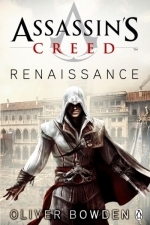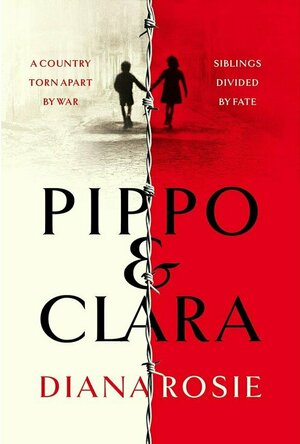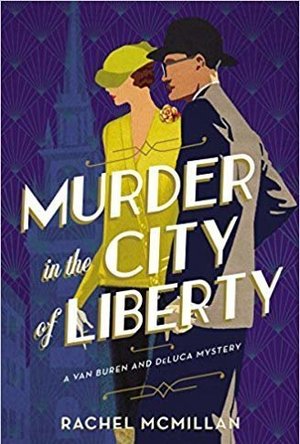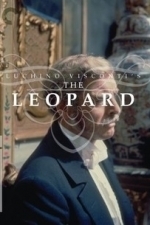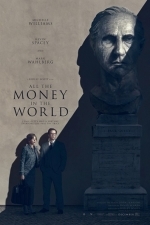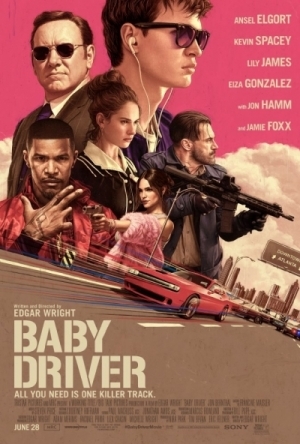Search
Search results
David McK (3204 KP) rated Assassin's Creed: Renaissance in Books
Jan 28, 2019
The Assassin's Creed video-games, for anyone who has been living in a cave for the last (roughly) decade or so, are Ubisoft's free-roaming murder-em-up games, detailing the ongoing secretive war between the order of the Assassins, and that of the Templars.
To date, I've played pretty much all of those games (or, atl least, those released for the PS3 and PS4), with the exception of Assassin's Creed: Unity. I'm also a heacvy reader, and have also seen to so-so Assassin's Creed movie (starring Michael Fassbender) that made the - in my eyes, wise, - decision to introduce a new character and historical period.
As such, I think it's fair to say I know enough about the series itself.
Of that series, the most enjoyable game (IMO) have been those set in the Renaissance period; those starring Ezio Auditore - the protaganist of this novel. Unfortunatley, however, this is a virtual retreading of the plot of the game, complete with passages where Ezio learns how to blend in (C'mon! It makes sense in the game, but not exactly an exciting narrative) or has to race hios accomplices from points A to point B (again, gives the player something to do in the game, but not exaclt exciting to read about).
It also doesn't help that this liberally mixes modern-day English and expressions with Italian phrases throughout (that require constant look-up to the glossary), nor that the author seemingly manages to make an entertaining game and compelling central character(s) into a bit of a chore to read through. On the plus side, it does away with all the modern-day Desmond sections from the game ...
Overall, however, I'm not impressed (sadly).
To date, I've played pretty much all of those games (or, atl least, those released for the PS3 and PS4), with the exception of Assassin's Creed: Unity. I'm also a heacvy reader, and have also seen to so-so Assassin's Creed movie (starring Michael Fassbender) that made the - in my eyes, wise, - decision to introduce a new character and historical period.
As such, I think it's fair to say I know enough about the series itself.
Of that series, the most enjoyable game (IMO) have been those set in the Renaissance period; those starring Ezio Auditore - the protaganist of this novel. Unfortunatley, however, this is a virtual retreading of the plot of the game, complete with passages where Ezio learns how to blend in (C'mon! It makes sense in the game, but not exactly an exciting narrative) or has to race hios accomplices from points A to point B (again, gives the player something to do in the game, but not exaclt exciting to read about).
It also doesn't help that this liberally mixes modern-day English and expressions with Italian phrases throughout (that require constant look-up to the glossary), nor that the author seemingly manages to make an entertaining game and compelling central character(s) into a bit of a chore to read through. On the plus side, it does away with all the modern-day Desmond sections from the game ...
Overall, however, I'm not impressed (sadly).
ClareR (5582 KP) rated Pippo and Clara in Books
Apr 16, 2021
Pippo and Clara begins in 1938, in Italy. Mussolini is in power and WW2 is imminent. The Fascists have control of the country, but not necessarily the people, and the Italian Communists are fighting back.
Pippo and Clara arrive in the city with their mother after their Romany father is murdered. One morning their mother gets up early to buy food and doesn’t return. Clara goes to look for her, turning right at the entrance to their building; later Pippo awakens and goes to look for his mother and Clara, turning left at the entrance. This change in direction means the children don’t see one another for a long time.
Luckily, they are each adopted into families (unofficially) who love and care for them - Clara’s family are Fascists, Pippo’s are Communists.
This was such an emotional story. It wasn’t just what happened to these children, it was the bigger picture as well. When the inevitable happens and the Germans occupy Italy, Jews are rounded up and taken away, people fear for their freedom and their lives.
It was fascinating to read about the Freedom Fighters (Partisans) and their acts of espionage, as well as how they fought back. This included even those who had been fascists under Mussolini’s regime.
There’s so much to talk about in this book (perfect for a book club, I should think!), but I won’t spoil it. Needless to say, I really enjoyed it and was thoroughly heartbroken by the end. Any book about war is going to have tragic elements, but this is about hope as well, and the fact that good can, and did, overcome evil.
Another recommendation for the historical fiction fans. It’s a fabulous novel.
Pippo and Clara arrive in the city with their mother after their Romany father is murdered. One morning their mother gets up early to buy food and doesn’t return. Clara goes to look for her, turning right at the entrance to their building; later Pippo awakens and goes to look for his mother and Clara, turning left at the entrance. This change in direction means the children don’t see one another for a long time.
Luckily, they are each adopted into families (unofficially) who love and care for them - Clara’s family are Fascists, Pippo’s are Communists.
This was such an emotional story. It wasn’t just what happened to these children, it was the bigger picture as well. When the inevitable happens and the Germans occupy Italy, Jews are rounded up and taken away, people fear for their freedom and their lives.
It was fascinating to read about the Freedom Fighters (Partisans) and their acts of espionage, as well as how they fought back. This included even those who had been fascists under Mussolini’s regime.
There’s so much to talk about in this book (perfect for a book club, I should think!), but I won’t spoil it. Needless to say, I really enjoyed it and was thoroughly heartbroken by the end. Any book about war is going to have tragic elements, but this is about hope as well, and the fact that good can, and did, overcome evil.
Another recommendation for the historical fiction fans. It’s a fabulous novel.
The Chocolate Lady (94 KP) rated Murder in the City of Liberty (A Van Buren and DeLuca Mystery #2) in Books
Oct 6, 2020
Maybe I should have read the first book in this series before asking for this via NetGalley. Unfortunately, I don't think I can finish reading this.
For example, I was terribly confused by the scene which has DeLuca saving Van Buren from almost drowning. The whole episode just wasn't described so that I could visualize what was going on, who was where, how she got into the water, and how he was able to find her to save her. I'm hoping that this is fixed in the final version.
By the way, I don't think that this author knows Chicago that well. She describes a warehouse there near the lake, but by her description, it sounds like it is only yards from the lakefront. However, as far as I know there were never any shipping warehouses on the lakefront, only on the river. That means the characters in that scene couldn't have been looking out on Lake Michigan, but only onto the Chicago River.
Another thing that confused me was why the author gave DeLuca - who is so Italian that he translates from that language into English - a very Scottish first name like Hamish. If that's explained in the first novel, I really wish the author had added a line about it in this one.
Finally, the "romance" bit here - or should I call it angst - was too overpowering for me. DeLuca goes on and on about every aspect of this woman and why he adores her and how he feels when he's around her. When she started in on her feelings towards him, well... that's when I gave up on this book. (I only read about 15%.)
This is really a shame because I've been trying to find a good cozy mystery series where I can fall in love with the protagonist/s and enjoy some harmless sleuthing on a historical backdrop. I'm afraid this one didn't deliver for me.
Now I have to figure out what I'm going to tell NetGalley when I tell them I'll not be reviewing this book.
For example, I was terribly confused by the scene which has DeLuca saving Van Buren from almost drowning. The whole episode just wasn't described so that I could visualize what was going on, who was where, how she got into the water, and how he was able to find her to save her. I'm hoping that this is fixed in the final version.
By the way, I don't think that this author knows Chicago that well. She describes a warehouse there near the lake, but by her description, it sounds like it is only yards from the lakefront. However, as far as I know there were never any shipping warehouses on the lakefront, only on the river. That means the characters in that scene couldn't have been looking out on Lake Michigan, but only onto the Chicago River.
Another thing that confused me was why the author gave DeLuca - who is so Italian that he translates from that language into English - a very Scottish first name like Hamish. If that's explained in the first novel, I really wish the author had added a line about it in this one.
Finally, the "romance" bit here - or should I call it angst - was too overpowering for me. DeLuca goes on and on about every aspect of this woman and why he adores her and how he feels when he's around her. When she started in on her feelings towards him, well... that's when I gave up on this book. (I only read about 15%.)
This is really a shame because I've been trying to find a good cozy mystery series where I can fall in love with the protagonist/s and enjoy some harmless sleuthing on a historical backdrop. I'm afraid this one didn't deliver for me.
Now I have to figure out what I'm going to tell NetGalley when I tell them I'll not be reviewing this book.
Martin Scorsese recommended The Leopard (1963) in Movies (curated)
Hazel (1853 KP) rated The Ice-Cream Makers in Books
Dec 14, 2018
<i>I received this book for free through Goodreads First Reads.</i>
An intriguing blurb promises an incredible story about an Italian ice-cream making family, however the story is nothing like you expect. Ernest van der Kwast’s <i>The Ice-Cream Makers</i> is set between a small village in Italy and the busy summer streets of Rotterdam. The Talamini family has been creating innovative ice-cream flavours for over a century, running a successful and hard-working parlour in the Netherlands. The business is handed down from father to son throughout the years, but now eldest son Giovanni has broken the tradition.
Giovanni Talamini has no interest in making ice-cream and would much rather spend the day reading poetry. After pursuing a literary career, Giovanni is now the director of the World Poetry Festival. Younger brother Luca has been left to pick up the <i>spatula</i> of the family business, but he has a problem of his own. Giovanni faces a dilemma: cut himself of from his family entirely or help his brother out with his peculiar request.
The highly unusual request mentioned in the blurb of <i>The Ice-Cream Makers</i> does not actually surface until the latter stages of the book. For the majority of the narrative there is no clear storyline, however the detail and information van der Kwast provides about ice-cream making, poetry and European culture makes the novel entirely worth reading. The request itself is entirely unexpected and not at all possible to guess, but it is an oddly brilliant way of reuniting two estranged brothers.
It takes a while for the narrative to start flowing as it constantly changes time periods. Giovanni, the narrator, rarely speaks in the present tense and is constantly relating events from his childhood and adulthood interspersed with family history and historical knowledge. On occasion the book takes on the air of an autobiography as Giovanni gives an in depth insight to the life of his family and his break from tradition. There is also the odd chapter that becomes almost a work of non-fiction, providing the reader with highbrow literary references and factual information about the history of ice-cream.
Once the scenes caused by the male sexual mind have been glossed over, <i>The Ice-Cream Makers</i> becomes a beautifully written, almost poetical story that compels and engages the reader despite the lack of a clear-cut storyline. The literary references will appeal to the intellectual, scholar, philosopher or culture enthusiast, for this novel teaches and inspires as well as entertains.
The amount of research van der Kwast conducted is phenomenal. The accuracy (or so is presumed) of the historical factors implies the author had thoroughly investigated the subject matter prior to writing. It is almost as though van der Kwast lived the life of Giovanni; it is entirely believable – hence the sense of an autobiography. Although the nature of the novel’s theme suggests a serious tone, van der Kwast has included a great deal of humour in the form of Giovanni and Luca’s father and his questionable mental health.
The lack of a climax prevents <i>The Ice-Cream Makers</i> from being described as an exciting book, however its beautifully poetic prose makes up for this absence. The philosophical insight into poetry will make you think about life and admire Giovanni for insisting on making his own way in the world. Likewise, Luca’s quiet acceptance and perseverance in the family business is also an admirable feat. Readers with a dislike for descriptive sexual scenarios may feel uncomfortable in a few of the resulting scenes, however the general story compensates for these distasteful passages. All in all, a high-quality work of fiction.
An intriguing blurb promises an incredible story about an Italian ice-cream making family, however the story is nothing like you expect. Ernest van der Kwast’s <i>The Ice-Cream Makers</i> is set between a small village in Italy and the busy summer streets of Rotterdam. The Talamini family has been creating innovative ice-cream flavours for over a century, running a successful and hard-working parlour in the Netherlands. The business is handed down from father to son throughout the years, but now eldest son Giovanni has broken the tradition.
Giovanni Talamini has no interest in making ice-cream and would much rather spend the day reading poetry. After pursuing a literary career, Giovanni is now the director of the World Poetry Festival. Younger brother Luca has been left to pick up the <i>spatula</i> of the family business, but he has a problem of his own. Giovanni faces a dilemma: cut himself of from his family entirely or help his brother out with his peculiar request.
The highly unusual request mentioned in the blurb of <i>The Ice-Cream Makers</i> does not actually surface until the latter stages of the book. For the majority of the narrative there is no clear storyline, however the detail and information van der Kwast provides about ice-cream making, poetry and European culture makes the novel entirely worth reading. The request itself is entirely unexpected and not at all possible to guess, but it is an oddly brilliant way of reuniting two estranged brothers.
It takes a while for the narrative to start flowing as it constantly changes time periods. Giovanni, the narrator, rarely speaks in the present tense and is constantly relating events from his childhood and adulthood interspersed with family history and historical knowledge. On occasion the book takes on the air of an autobiography as Giovanni gives an in depth insight to the life of his family and his break from tradition. There is also the odd chapter that becomes almost a work of non-fiction, providing the reader with highbrow literary references and factual information about the history of ice-cream.
Once the scenes caused by the male sexual mind have been glossed over, <i>The Ice-Cream Makers</i> becomes a beautifully written, almost poetical story that compels and engages the reader despite the lack of a clear-cut storyline. The literary references will appeal to the intellectual, scholar, philosopher or culture enthusiast, for this novel teaches and inspires as well as entertains.
The amount of research van der Kwast conducted is phenomenal. The accuracy (or so is presumed) of the historical factors implies the author had thoroughly investigated the subject matter prior to writing. It is almost as though van der Kwast lived the life of Giovanni; it is entirely believable – hence the sense of an autobiography. Although the nature of the novel’s theme suggests a serious tone, van der Kwast has included a great deal of humour in the form of Giovanni and Luca’s father and his questionable mental health.
The lack of a climax prevents <i>The Ice-Cream Makers</i> from being described as an exciting book, however its beautifully poetic prose makes up for this absence. The philosophical insight into poetry will make you think about life and admire Giovanni for insisting on making his own way in the world. Likewise, Luca’s quiet acceptance and perseverance in the family business is also an admirable feat. Readers with a dislike for descriptive sexual scenarios may feel uncomfortable in a few of the resulting scenes, however the general story compensates for these distasteful passages. All in all, a high-quality work of fiction.
Bob Mann (459 KP) rated All the Money in the World (2017) in Movies
Sep 29, 2021
You can’t take it with you.
The big talking point of this Ridley Scott film is not of course the film itself but the fact that the disgraced Kevin Spacey (“Baby Driver“) was ‘airbrushed’ out of the movie, replaced by the legend that is Christopher Plummer. With that background, and the fact that the re-shoot only took 9 days (NINE DAYS!!!!), I must admit to having been a tad scornful when Plummer was nominated for a Best Supporting Actor Oscar. “Oh” I thought “…it’s Judi Dench’s minimalistic performance in ‘Shakespeare In Love’ all over again”.
But actually on watching the film I take it all back. Plummer’s role is not, like Dench’s, a mere eight minutes of screen time, but extensive and pivotal. Not only was his nomination richly deserved (his performance is cold, eerie and magnificent!) but Ridley Scott deserved an award for getting so much great footage in the can in such a short space of time.
The film tells the true story of the feckless John Paul Getty III (Charlie Plummer, no relation), grandson to the richest man in the world John Paul Getty I. While in the Piazza Farnese in Rome, JPGIII is kidnapped and a $17 million reward is sought for his release. Whilst claiming to love his offspring, the tycoon is basically a ‘tight git’ and the film concerns the battle of the young heir’s mother Gail (Michelle Williams, “Manchester By The Sea”; “The Greatest Showman”) to persuade JPG1 and his right-hand negotiator Fletcher Chase (Mark Wahlberg, “Patriot’s Day”, “Deep Water Horizon“) to shake the money tree* and get JPGIII released.
*To be fair, JPGIII hasn’t exactly helped his case as it emerges he had previously joked about getting himself kidnapped to get his grandfather’s ransom money!
As I didn’t remember the historical outcome of this, I was in a suitable amount of suspense as to where it would go. It is clear though, from the wiki version of the story, that the ending was significantly ‘sexed-up’ for the movie.
Ridley Scott sensibly balances the views of the Getty’s with the views of the kidnappers, with a semi-sympathetic Italian (Romain Duris) being the focus of those scenes in rural Calabria.
But it’s the scenes with Plummer that really engage. The man as portrayed is an enigma, eccentrically washing his own clothes to save a few pennies and always (ALWAYS) trying to get 20% more on even the most personal of decisions. It makes me really intrigued to see Spacey’s portrayal now… I wonder if the alternate cut might make it onto the Blu-ray? I actually think though that Plummer was the better choice for this: I could see Spacey bringing far too much of Frank Underwood to the role.
Elsewhere in the cast, I think Michelle Williams and Mark Wahlberg are both solid without ever being spectacular and it’s nice to see the talented Andrew Buchan (“The Mercy“; “Broadchurch”) in a more memorable big screen outing as JPG2: his drug-addled son (and JPG3’s father).
Overall, it’s an interesting watch and had me sufficiently engaged to want to watch it again. But without Plummer’s role it wouldn’t really amount to nearly as much.
But actually on watching the film I take it all back. Plummer’s role is not, like Dench’s, a mere eight minutes of screen time, but extensive and pivotal. Not only was his nomination richly deserved (his performance is cold, eerie and magnificent!) but Ridley Scott deserved an award for getting so much great footage in the can in such a short space of time.
The film tells the true story of the feckless John Paul Getty III (Charlie Plummer, no relation), grandson to the richest man in the world John Paul Getty I. While in the Piazza Farnese in Rome, JPGIII is kidnapped and a $17 million reward is sought for his release. Whilst claiming to love his offspring, the tycoon is basically a ‘tight git’ and the film concerns the battle of the young heir’s mother Gail (Michelle Williams, “Manchester By The Sea”; “The Greatest Showman”) to persuade JPG1 and his right-hand negotiator Fletcher Chase (Mark Wahlberg, “Patriot’s Day”, “Deep Water Horizon“) to shake the money tree* and get JPGIII released.
*To be fair, JPGIII hasn’t exactly helped his case as it emerges he had previously joked about getting himself kidnapped to get his grandfather’s ransom money!
As I didn’t remember the historical outcome of this, I was in a suitable amount of suspense as to where it would go. It is clear though, from the wiki version of the story, that the ending was significantly ‘sexed-up’ for the movie.
Ridley Scott sensibly balances the views of the Getty’s with the views of the kidnappers, with a semi-sympathetic Italian (Romain Duris) being the focus of those scenes in rural Calabria.
But it’s the scenes with Plummer that really engage. The man as portrayed is an enigma, eccentrically washing his own clothes to save a few pennies and always (ALWAYS) trying to get 20% more on even the most personal of decisions. It makes me really intrigued to see Spacey’s portrayal now… I wonder if the alternate cut might make it onto the Blu-ray? I actually think though that Plummer was the better choice for this: I could see Spacey bringing far too much of Frank Underwood to the role.
Elsewhere in the cast, I think Michelle Williams and Mark Wahlberg are both solid without ever being spectacular and it’s nice to see the talented Andrew Buchan (“The Mercy“; “Broadchurch”) in a more memorable big screen outing as JPG2: his drug-addled son (and JPG3’s father).
Overall, it’s an interesting watch and had me sufficiently engaged to want to watch it again. But without Plummer’s role it wouldn’t really amount to nearly as much.
Bob Mann (459 KP) rated Baby Driver (2017) in Movies
Sep 29, 2021
A summer film so cool that air-con is optional.
Sorry for the lack of posts folks…. with a holiday in sunny Portugal, I’ve not been to the pics for weeks!
There’s something inherently appealing about the concept of a getaway driver. A skillful ‘bad-boy’, but not normally bad enough to actually DO the nasty crime stuff…. merely be an active accomplice to it. As a result, it’s a subject that the movies have returned to time after time. I’m old and crusty enough to remember being wowed at seeing Ryan O’Neal in Walter Hill’s “Driver” on the big screen in 1978. And well before that, as a kid, my poor departed mother used to be driven crazy by me begging her to take me to see “The Italian Job” (the original 1969 version) YET again… probably the greatest getaway chase in movie history: I must have seen that film at least 20 times in the cinema. Of course more recently we’ve also had Ryan Gosling and Carey Mulligan in “Drive” on the same theme. Any I’ve forgotten?
But with Edgar Wright at the helm, a big name cast and an enticing trailer, I had high expectations for “Baby Driver” – and boy was I happy! This is such a seriously cool film on so many levels.
Opening with a bank heist followed by a kick-ass car chase, we follow ‘Baby’ (Ansel Elgort, “Allegiant”, “The Fault in our Stars”) as a tinnitus-suffering, music-infused getaway driver under the thumb of the criminal overlord Doc (Kevin Spacey, in icy Frank Underwood mode). Doc recruits an ever-changing mix-tape of villains for each job, including the psychopathic and appropriately named ‘Bats’ (Jamie Foxx, “Sleepless”), the chillingly dangerous Buddy (Jon Hamm, “Mad Men”, “Keeping Up With The Joneses”) and his “Bonnie-style” wife ‘Darling’ (Eiza González) and the moderately incompetent JD (Lanny Joon) (who changed his neck tattoo of “HATE” to “HAT” since it improved his job prospects… LOL…. “everybody loves a hat”!).
Baby’s life gets more complicated when the hoods become aware of his fledgling relationship with fellow-orphan Debora (Lily James) a waitress in a diner and another lever to keep Baby locked into the job that he is just so, so good at.
On the surface this might be perceived as being just another good excuse for a lot of CGI-driven car stunts in the style of “The Fate of the Furious”. But no. Firstly, as Edgar Wright declared before the special screening I saw, all of the car stunts were actually performed for real on the mean streets of Atlanta (and hats off to the film’s stunt coordinator Robert Nagle and his team for these). And secondly, the car scenes are almost secondary to the fabulous story and character development in the film. The script (also by Edgar Wright) is just brilliant. There are genuinely laugh-out loud moments in the movie, with one of the highlights for me being JD tasked with procuring Michael Myers “Halloween” masks for a heist. If you don’t find this scene hilarious, you are not human – official.
The only misstep for me in the script was an unbelievable event (both in terms of likelihood and – particularly – timing) during a closing car park fight***.
Elgort is really strong in the lead role, and suggested to me that if the role of the young Han Solo in the upcoming Star Wars spin-off hadn’t already gone to Alden Ehrenreich, then here was a very strong contender. All of the supporting roles are strong (as you would expect from such a stellar cast) with Jon Hamm being a standout, appearing truly demonic in the closing scenes. The one role I was less sure about in the film was that of Lily James, whose performance as the ‘sweet as apple pie’ waitress seemed a little too “animated” for the big screen in the early scenes – I remember an acting class by Michael Caine where he advised that given the size of movie screens it’s often the case that “stillness is good”. What works well on the small screen (I am a big fan of her roles in historical TV dramas like “Downton Abbey” and the impeccable “War and Peace”) perhaps sometimes needs modifying for the wide-screen experience. I greatly warmed to her portrayal in the action sequences later on though: she’s a great actress and one that this film can hopefully now propel into the higher echelons in Hollywood.
Another star of the film is the fabulous soundtrack coordinated by Oscar-winner Steven Price (“Gravity“) featuring (amongst many other classics) Queen’s “Brighton Rock”, Golden Earring’s “Radar Love”, the Simon and Garfunkel classic (obviously) and Bob & Earl’s “Harlem Shuffle”, all used to brilliant effect. This latter track leads me on to some early Oscar predictions: if this film doesn’t get nominated this year for Oscars for Best Editing (Jonathan Amos and Paul Machliss, “Scott Pilgrim vs the World”) and Best Sound Editing (Julian Slater), then there is no God! The “Harlem Shuffle” coffee run sequence is a masterclass in editing and direction. Starting off with what I thought might turn into a tribute to “Saturday Night Fever”, the scene neatly takes on a style all of its own. It’s use of – erm – “subtitles” is just brilliant.
The often subtle, and occasionally not so subtle, edits between scenes are also truly masterful, making this moviegoer laugh-out-loud with delight periodically at the movie-making skill on display.
All of this is orchestrated by Edgar Wright as director who – for me – has been a little inconsistent over the years (loved, loved, loved “Shaun of the Dead” and “Hot Fuzz”; “The World’s End” – not so much). Here, he delivers in spades and this film rockets immediately into my Films of the Year list for 2017. Awe inspiring.
Beg, steal, borrow, rob a bank – – do what you have to, but make sure you catch this film on the big screen.
There’s something inherently appealing about the concept of a getaway driver. A skillful ‘bad-boy’, but not normally bad enough to actually DO the nasty crime stuff…. merely be an active accomplice to it. As a result, it’s a subject that the movies have returned to time after time. I’m old and crusty enough to remember being wowed at seeing Ryan O’Neal in Walter Hill’s “Driver” on the big screen in 1978. And well before that, as a kid, my poor departed mother used to be driven crazy by me begging her to take me to see “The Italian Job” (the original 1969 version) YET again… probably the greatest getaway chase in movie history: I must have seen that film at least 20 times in the cinema. Of course more recently we’ve also had Ryan Gosling and Carey Mulligan in “Drive” on the same theme. Any I’ve forgotten?
But with Edgar Wright at the helm, a big name cast and an enticing trailer, I had high expectations for “Baby Driver” – and boy was I happy! This is such a seriously cool film on so many levels.
Opening with a bank heist followed by a kick-ass car chase, we follow ‘Baby’ (Ansel Elgort, “Allegiant”, “The Fault in our Stars”) as a tinnitus-suffering, music-infused getaway driver under the thumb of the criminal overlord Doc (Kevin Spacey, in icy Frank Underwood mode). Doc recruits an ever-changing mix-tape of villains for each job, including the psychopathic and appropriately named ‘Bats’ (Jamie Foxx, “Sleepless”), the chillingly dangerous Buddy (Jon Hamm, “Mad Men”, “Keeping Up With The Joneses”) and his “Bonnie-style” wife ‘Darling’ (Eiza González) and the moderately incompetent JD (Lanny Joon) (who changed his neck tattoo of “HATE” to “HAT” since it improved his job prospects… LOL…. “everybody loves a hat”!).
Baby’s life gets more complicated when the hoods become aware of his fledgling relationship with fellow-orphan Debora (Lily James) a waitress in a diner and another lever to keep Baby locked into the job that he is just so, so good at.
On the surface this might be perceived as being just another good excuse for a lot of CGI-driven car stunts in the style of “The Fate of the Furious”. But no. Firstly, as Edgar Wright declared before the special screening I saw, all of the car stunts were actually performed for real on the mean streets of Atlanta (and hats off to the film’s stunt coordinator Robert Nagle and his team for these). And secondly, the car scenes are almost secondary to the fabulous story and character development in the film. The script (also by Edgar Wright) is just brilliant. There are genuinely laugh-out loud moments in the movie, with one of the highlights for me being JD tasked with procuring Michael Myers “Halloween” masks for a heist. If you don’t find this scene hilarious, you are not human – official.
The only misstep for me in the script was an unbelievable event (both in terms of likelihood and – particularly – timing) during a closing car park fight***.
Elgort is really strong in the lead role, and suggested to me that if the role of the young Han Solo in the upcoming Star Wars spin-off hadn’t already gone to Alden Ehrenreich, then here was a very strong contender. All of the supporting roles are strong (as you would expect from such a stellar cast) with Jon Hamm being a standout, appearing truly demonic in the closing scenes. The one role I was less sure about in the film was that of Lily James, whose performance as the ‘sweet as apple pie’ waitress seemed a little too “animated” for the big screen in the early scenes – I remember an acting class by Michael Caine where he advised that given the size of movie screens it’s often the case that “stillness is good”. What works well on the small screen (I am a big fan of her roles in historical TV dramas like “Downton Abbey” and the impeccable “War and Peace”) perhaps sometimes needs modifying for the wide-screen experience. I greatly warmed to her portrayal in the action sequences later on though: she’s a great actress and one that this film can hopefully now propel into the higher echelons in Hollywood.
Another star of the film is the fabulous soundtrack coordinated by Oscar-winner Steven Price (“Gravity“) featuring (amongst many other classics) Queen’s “Brighton Rock”, Golden Earring’s “Radar Love”, the Simon and Garfunkel classic (obviously) and Bob & Earl’s “Harlem Shuffle”, all used to brilliant effect. This latter track leads me on to some early Oscar predictions: if this film doesn’t get nominated this year for Oscars for Best Editing (Jonathan Amos and Paul Machliss, “Scott Pilgrim vs the World”) and Best Sound Editing (Julian Slater), then there is no God! The “Harlem Shuffle” coffee run sequence is a masterclass in editing and direction. Starting off with what I thought might turn into a tribute to “Saturday Night Fever”, the scene neatly takes on a style all of its own. It’s use of – erm – “subtitles” is just brilliant.
The often subtle, and occasionally not so subtle, edits between scenes are also truly masterful, making this moviegoer laugh-out-loud with delight periodically at the movie-making skill on display.
All of this is orchestrated by Edgar Wright as director who – for me – has been a little inconsistent over the years (loved, loved, loved “Shaun of the Dead” and “Hot Fuzz”; “The World’s End” – not so much). Here, he delivers in spades and this film rockets immediately into my Films of the Year list for 2017. Awe inspiring.
Beg, steal, borrow, rob a bank – – do what you have to, but make sure you catch this film on the big screen.
